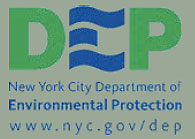Residents of others states are issuing words of warning for New Yorkers who may soon allow companies to use the "fracking" process to drill for natural gas.
I live and work in Marcellus shale ground zero -- central New York State, just south of the Finger Lakes, one of the biggest and best watersheds in the hemisphere. My home is in economically challenged, mostly rural Tioga County, and I work in Tompkins County. Almost all our neighbors for several miles around have signed gas leases. I participate regularly and actively as a client, colleague, patient, or volunteer with businesses, organizations, and institutions in 19 other New York counties.
I have been economically poor and landless, economically comfortable and landless, comfortable and landed, and poor and landed. I've been rural, suburban, and urban. And I've spent most of my adult life paying state and local taxes in New York State (and a whole lot of national taxes, most of which have gone toward things I do not condone).
Writer Maura Stephens lives in the hills outside Spencer, New York. She wrote this using voice recognition software.
This paper reviews the history of litigation concerning hydraulic fracturing.
LEAF Petitions EPA to Withdraw Primacy—1994
In 1994, an organization known as Legal Environmental Assistance Foundation (hereinafter referred to as “LEAF”) petitioned EPA to initiate proceedings to withdraw approval of the Alabama UIC program.
LEAF alleged that the Alabama program was deficient because it did not regulate hydraulic fracturing activities associated with coalbed methane gas production and the federal Safe Drinking Water Act (hereinafter referred to as “SDWA”).
LEAF further alleged that the SDWA required regulation under federal guidelines over hydraulic fracturing operations. In 1995, EPA denied the petition because it determined that hydraulic fracturing did not fall within the definition of "underground injection" under the SDWA.
EPA had concluded that methane gas production wells, which are also used for hydraulic fracturing of the coalbeds, are not required to be regulated under the SDWA because the principal function of these wells is not the underground emplacement of fluids; their principal function is to produce coalbed methane gas.
See: IADC. "Alabama lawsuit poses threat to hydraulic fracturing across U.S." Drilling Contractor. Jan/Feb. 2000.
See: Affirming Gasland
Visit Toxics Targeting for more information.
Ignitable Drinking Water From a Well in Candor, New York, Located Above the Marcellus Shale Formation (Spill #: 0811696)
See Walter Hang's letter to NYS DEC Commissioner Pete Grannis, 4/2/10.
Anne C. Mulkern, Greenwire. May 7, 2009. New York Times.
Fearing a push by House Democrats to regulate a controversial form of natural gas production, an industry coalition [Energy in Depth] launched a campaign yesterday arguing that new rules would kill jobs and batter the economy. [See Sourcewatch: Energy in Depth]
The coalition of independent oil and gas companies says a Democratic proposal to allow new oversight over hydraulic fracturing would slash domestic oil and gas production and cost the Treasury $4 billion in lost taxes, royalties, rents and other payments. But environmentalists and an aide to a Democratic lawmaker backing regulation say the claim amounts to "scare tactics."
...The 2005 Energy Policy Act exempted hydraulic fracturing from regulation under the Safe Water Drinking Act. But Rep. Diana DeGette (D-Colo.) proposed a bill last year to repeal that exemption. DeGette is now talking with Energy and Commerce Chairman Henry Waxman (D-Calif.) about either inserting her bill into pending climate legislation or reintroducing the measure on its own.
"We're hoping to move this forward shortly," DeGette spokesman Kristofer Eisenla said. Without federal oversight, he said, there is no way to really track whether the process is safe.
By Mark Schleifstein, The Times-Picayune. New Orlean, LA., December 18, 2009.
"The state Department of Environmental Quality has demanded that the federal Environmental Protection Agency rescind its recent finding that greenhouse gases endanger present and future generations, and take no action to require industries and small businesses to reduce greenhouse gas emissions."
Reading the minutes of this meeting held on April 28, 2009 led me to many of the significant documents used in the production of my Fracking Guide. Since this meeting a year ago, many other city and county legislatures in New York have adopted similar resoultions. (Neil Zusman, 2010-04-29.)
Resolution by The City of New York Manhattan Community Board No. 3.
Item No. 3 of minutes. Page 4 of 9.
3. Resolution regarding drilling in Marcellus Shale and impact on NYS water supply VOTE: WHEREAS, On July 23, 2008 Governor David Patterson signed A10526/S08169 into law, a bill setting certain technical requirements pertaining to well spacing which will facilitate the use of hydraulic fracturing for natural gas recovery in an under ground geological formation known as the Marcellus Shale...
WHEREAS, serious deficiencies in a review of the effects of hydraulic fracturing on drinking water supplies conducted by the U.S. Environmental Protection Agency (EPA) have been raised, including the alleged removal of key passages in that document by officials from the Office of Vice President Dick Cheney, as reported on October 14, 2004 by the Los Angeles Times, and the characterization of the report as "scientifically unsound" by an internal EPA whistleblower...
THEREFORE, BE IT RESOLVED that Manhattan Community Board #3 unequivocally urges the New York State Department of Environmental Conservation to prohibit the use of hydraulic fracturing in the New York State and especially within the City watershed..."

Joanne Fiorito, acting as the eyes of the DEP, recently discovered a waste spill at a drilling site just off RT 29 and upon reporting the spill was warned not to trespass.
"If the DEP can't monitor these sites on their own," said Ms.Joanne Fiorito "and then the DEP tells us that we cannot trespass after we found a spill on the Grimsley well pad site that wasn't reported to the DEP by Cabot, well then, where does this leave the citizens of PA who are dependent on the DEP doing its job?
It has gotten to the point where I and others will have to do it ourselves, and I personally don't care if they arrest me for civil disobedience, because this land, air and water is what keeps us all alive."
People Feel Threatened
Chesapeake Energy reports that citizens in Wetzel County, West Virginia have placed spikes along RT 89.
Pittsburgh Post Gazette reports that 161 species found killed along 38 miles of Dunkard Creek -- "Sudden death of ecosystem ravages long creek 'Everything is being killed': 161 aquatic species have died along Dunkard Creek" by Don Hopey, Pittsburgh Post-Gazette; September 20, 2009.
Series: Buried Secrets: Gas Drilling's Environmental Threat.
Drilling companies assert that the destructive forces unleashed by the fracturing process, including the sometimes toxic chemicals that keep the liquid flowing, remain safely sealed as much as a mile or more beneath the earth, far below drinking water sources and the rest of the natural environment.
More than a year of investigation by ProPublica, however, shows that the issues are far less settled than the industry contends, and that hidden environmental costs could cut deeply into the anticipated benefits.
The technique used to extract the gas, known as hydraulic fracturing, has not received the same scientific scrutiny as the processes used for many other energy sources.
New York City Department of Environmental Protection. 12/23/2009. Impact Assessment of Natural Gas Production in the New York City Water Supply Watershed. 24 pages.
See: Bruce Stutz. Mar. 25, 2010. "A Contoversial Drilling Practice Hits Roadblock in New York." Yale University. Environment360
"A faction of Northeast Ohio residents and lawmakers fighting for stricter regulations on oil and gas well drilling are getting outmuscled in the Ohio Senate and are turning their attention to the House. The state's powerful oil and gas industry, Gov. Ted Strickland's administration and lawmakers from outside greater Cleveland have teamed up to produce a set of rules its critics say don't do enough to protect homeowners living near wells."












